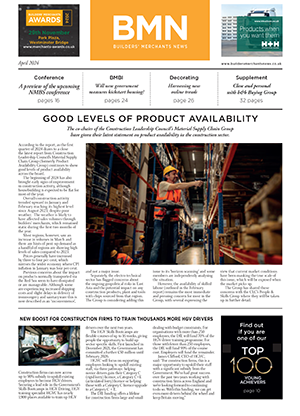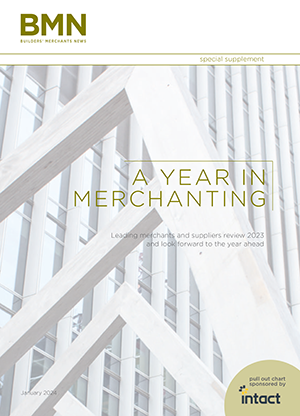Futureproofing is essential for any company to ensure their investments remain healthy and that they remain ahead of the curve, believes Simon Midwood, managing director of TIMco.
All too often, companies can end up investing in updating both their hardware and software, only for that technology to be surpassed a short time later, or worse, no longer supported.
With so much political and economic uncertainty, particularly after the US election result, companies have to be ready for anything. So how do we ensure we are proactive and that we remain innovative within the industry? The answer lies not in seeing into the future, but in continuously "futureproofing" and making sure investments continue to be of value into the distant future.
Simon Midwood, managing director of fixing and fastening supplier TIMco, knows all too well the importance of future proofing. Taking over TIMco in 2002 from his dad Tim Midwood, Simon has led the company through a recession while achieving consistent growth and now, in 2017, has further expanded his company's capabilities by adding a 30,000sq foot warehouse.
"Here at TIMco, we understand the importance of not only investing in new technologies to futureproof, but investing in our people too, ensuring they are on the journey of development with us. This comes down to investing in the culture of our company, as well as the continual training of every member of staff. These are the people that ultimately put our futureproofing strategies into place.
"These investments not only enable us to remain industry leaders and proactive within the industry, they also all provide benefits to our customers such as improved order accuracy, and a more user-friendly customer experience.
"Good technology is that which follows accepted industry standards. It requires a considerable number of people to be using it, and therefore it is likely to progress positively and usefully, while being supported by a large community of stakeholders. There are always new fads and fashions, but if they are not picked up by the industry then they can end up stagnating, being neglected, and not keeping pace with technology in general.
"It's very important to take scaling into account when it comes to the solutions you select. If you select a solution for a group of 10 people, it’s important to ensure the technology can scale up should more people in the company start to use it. If the technology you have chosen doesn't scale, then it could cost the company a lot of time, money and effort.
"The technology you implement should be flexible. Take smartphones, for example: iPhones and Androids generally receive updates to the operating system which allow them to continue to be relevant and deliver value during their lifecycle. Companies are increasingly turning to the cloud for reasons such as the ability to have the latest technology without investing in new hardware, increasing business agility, and supporting mobile workers."









